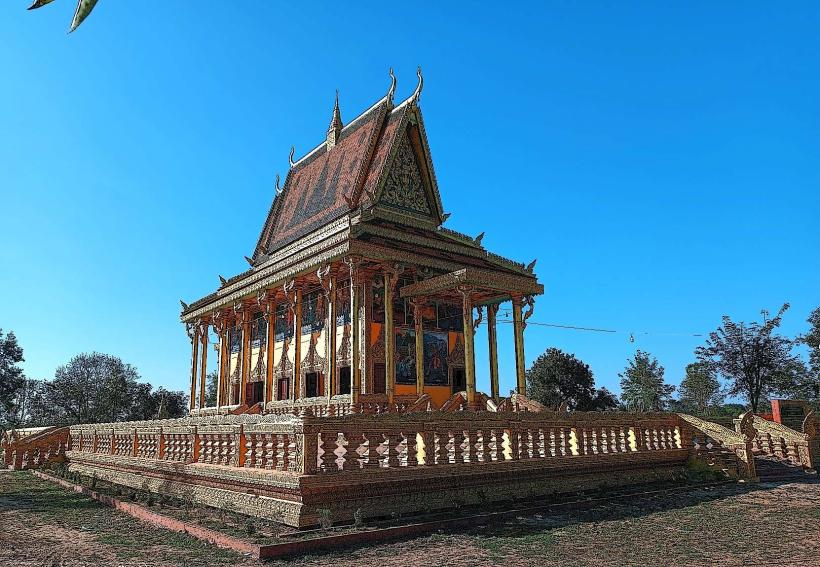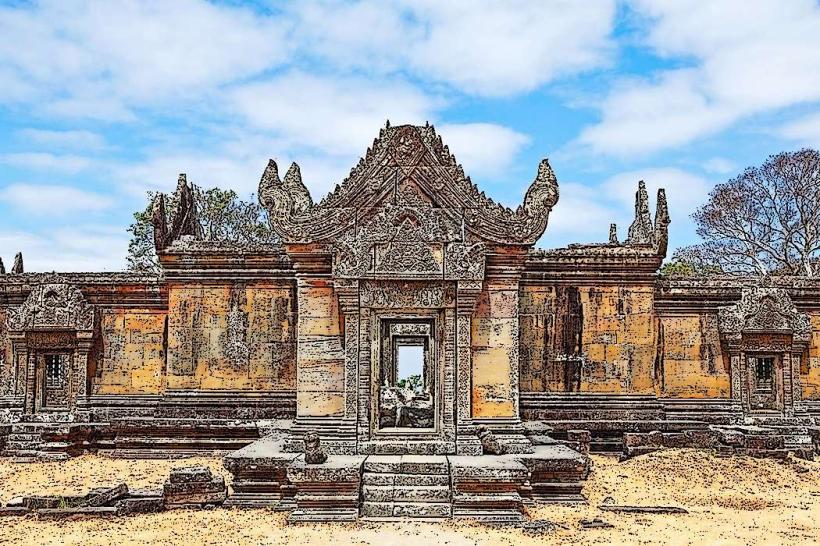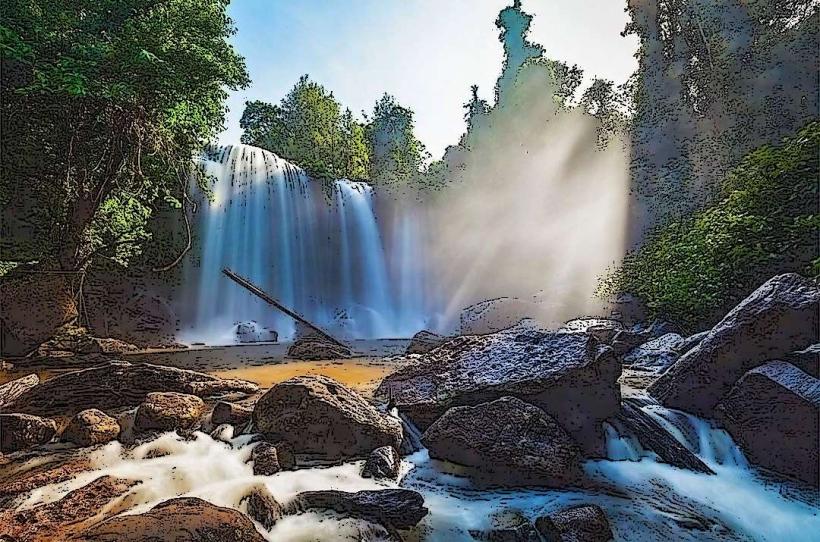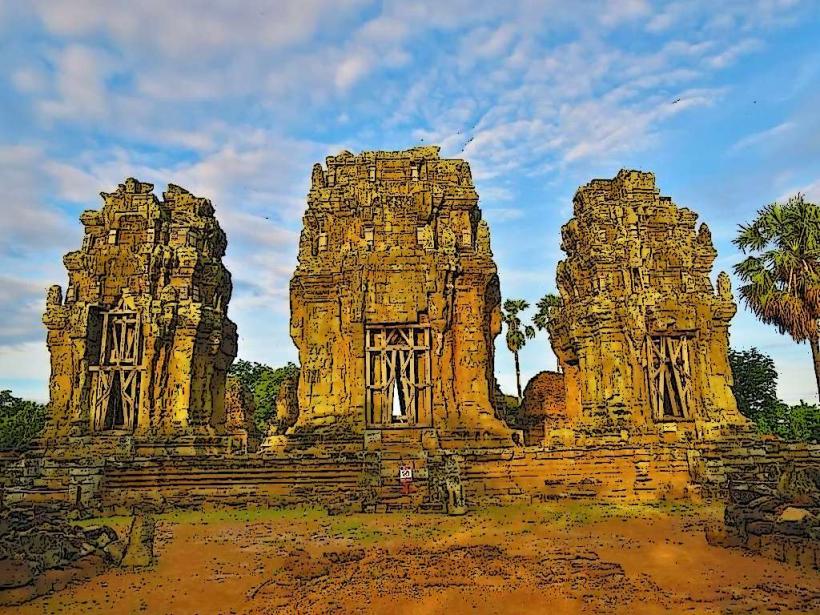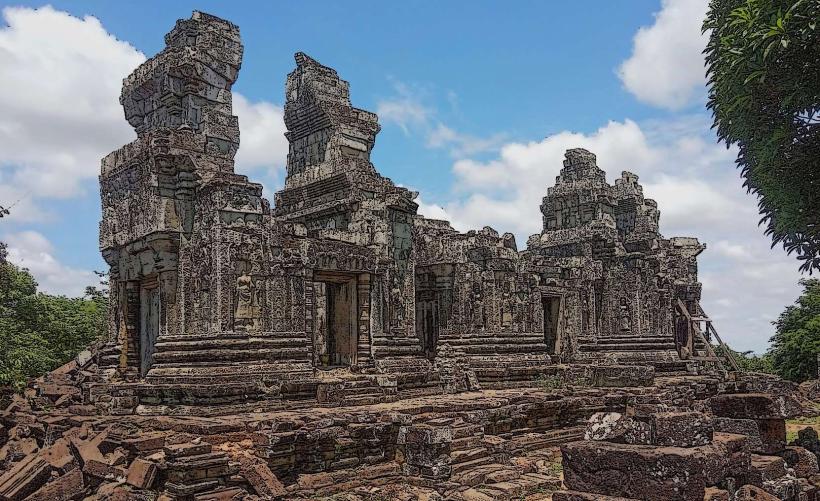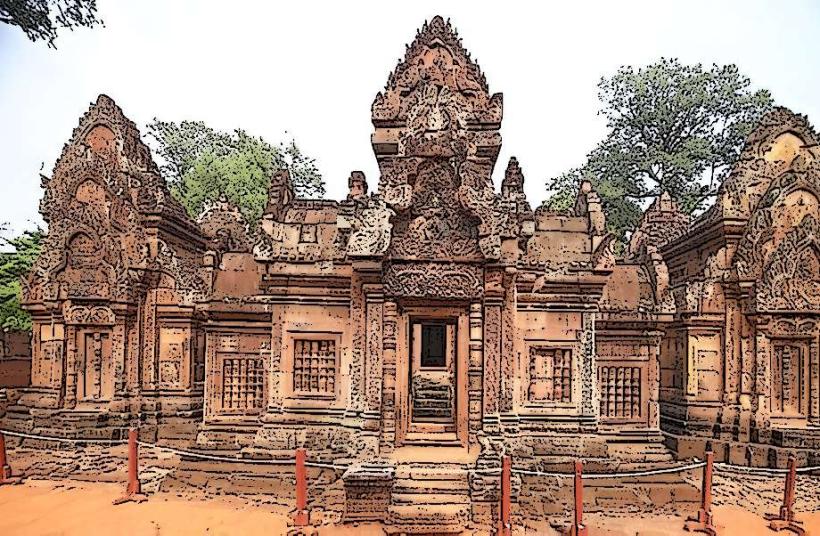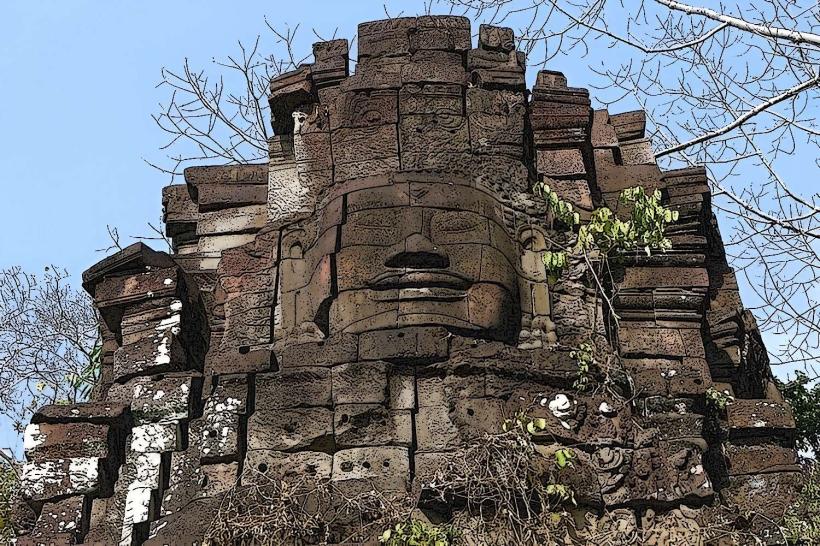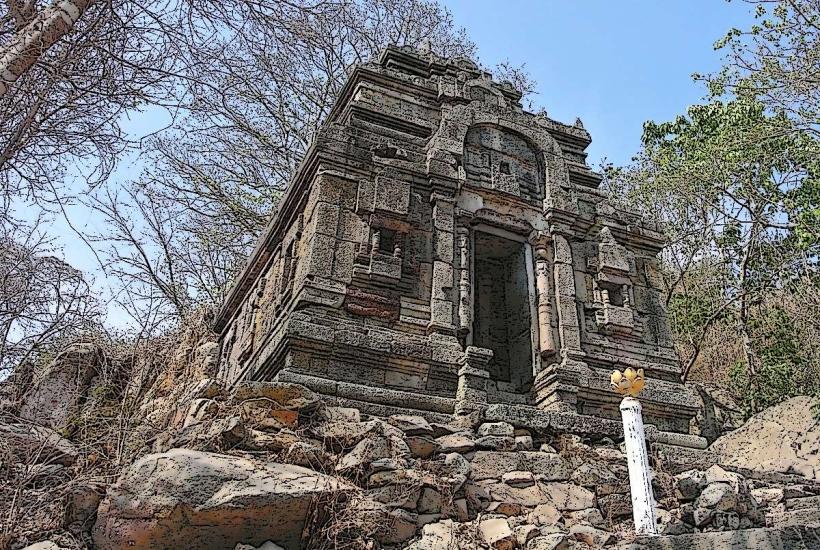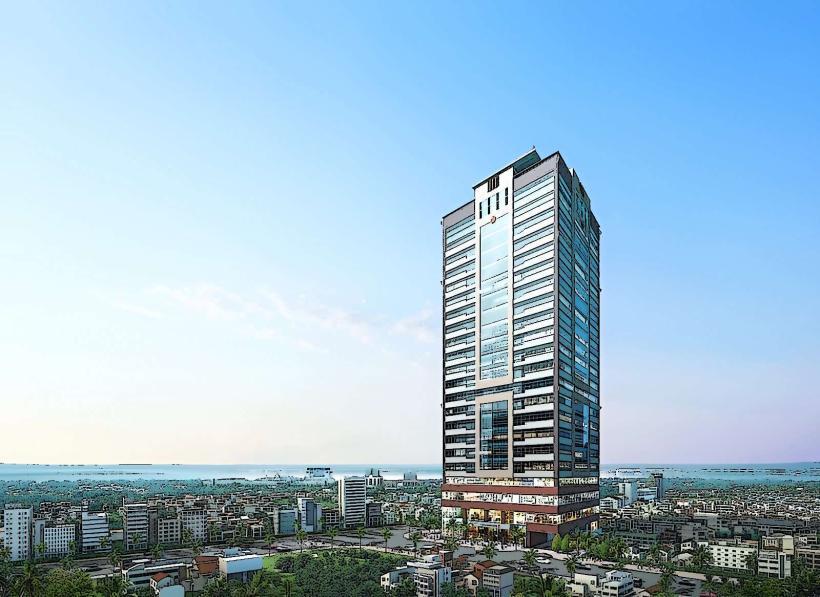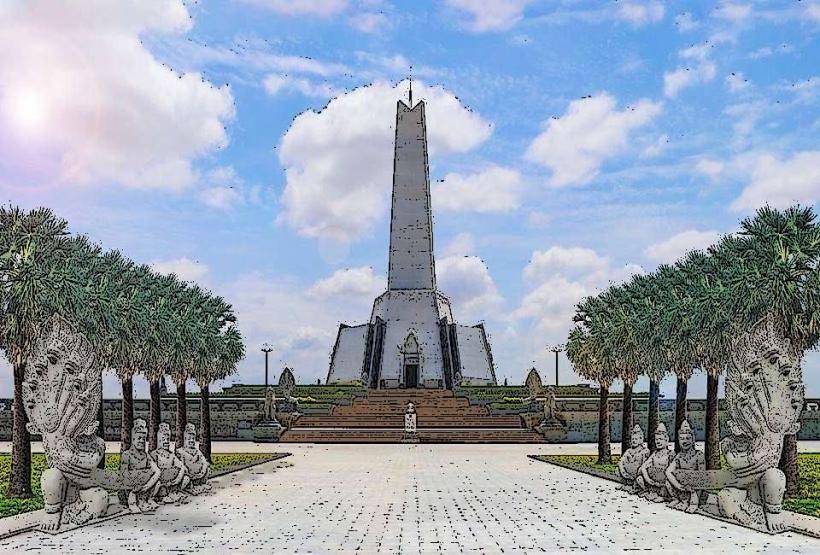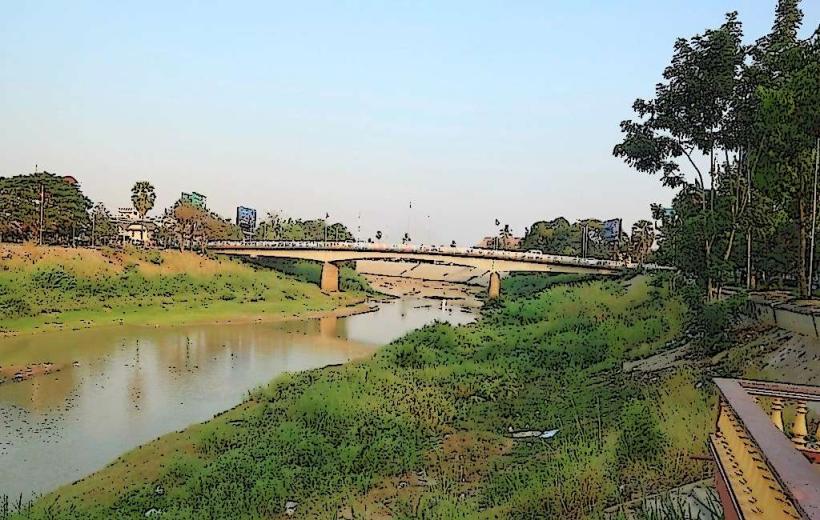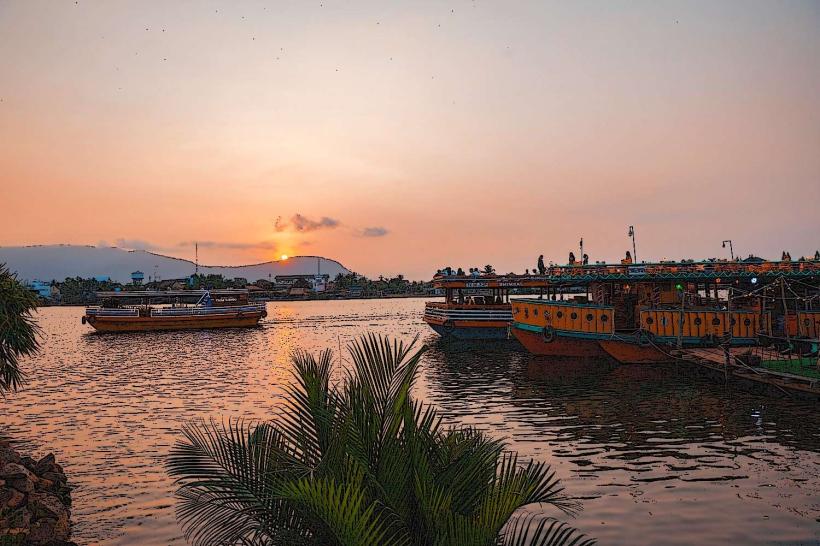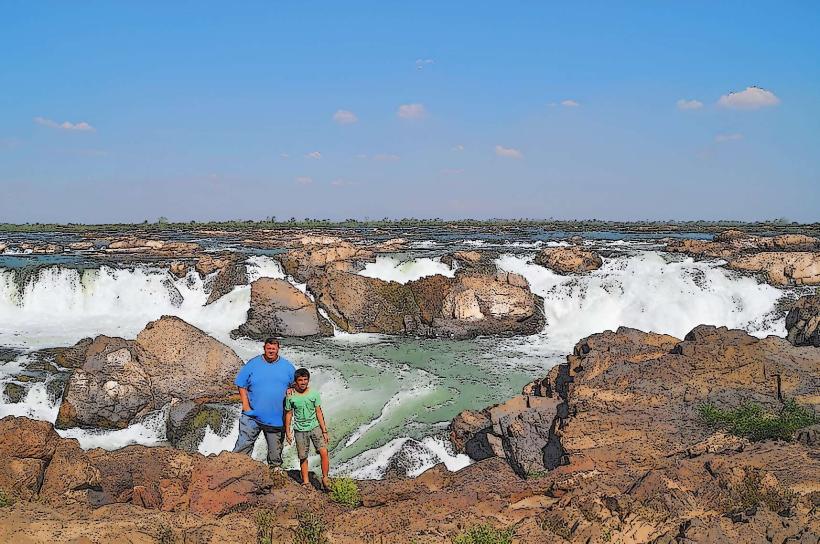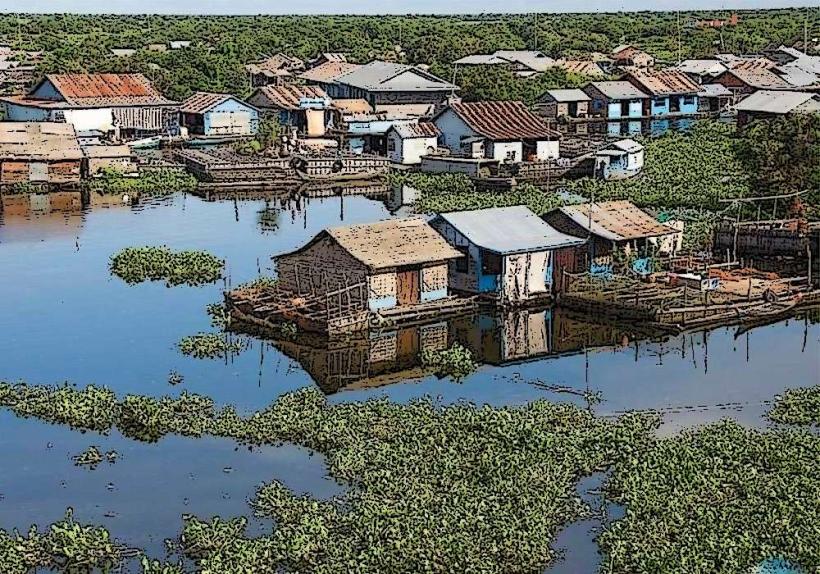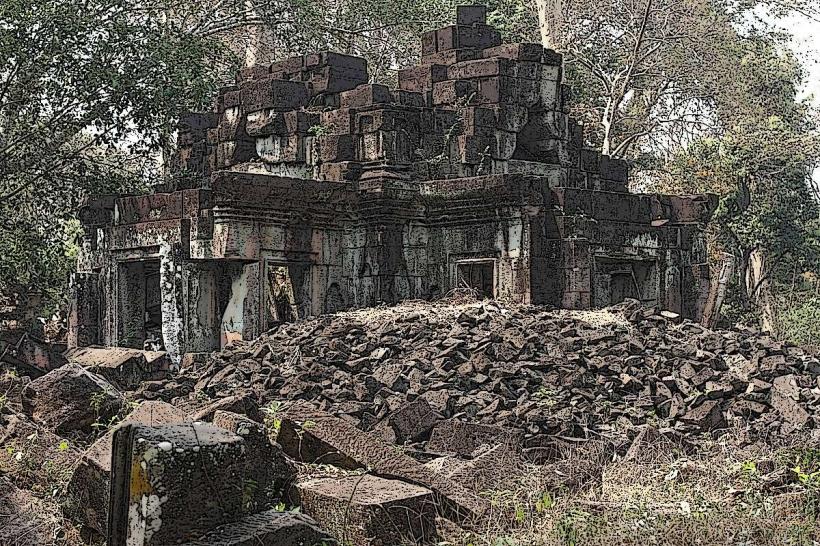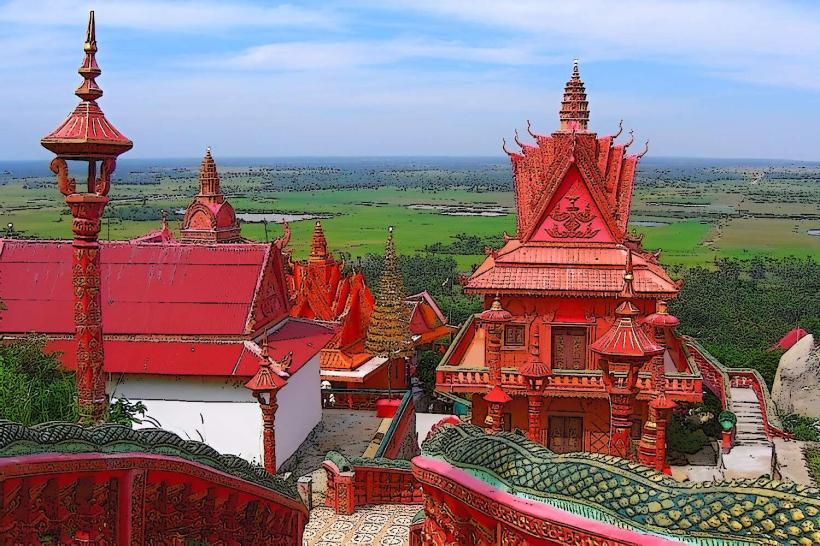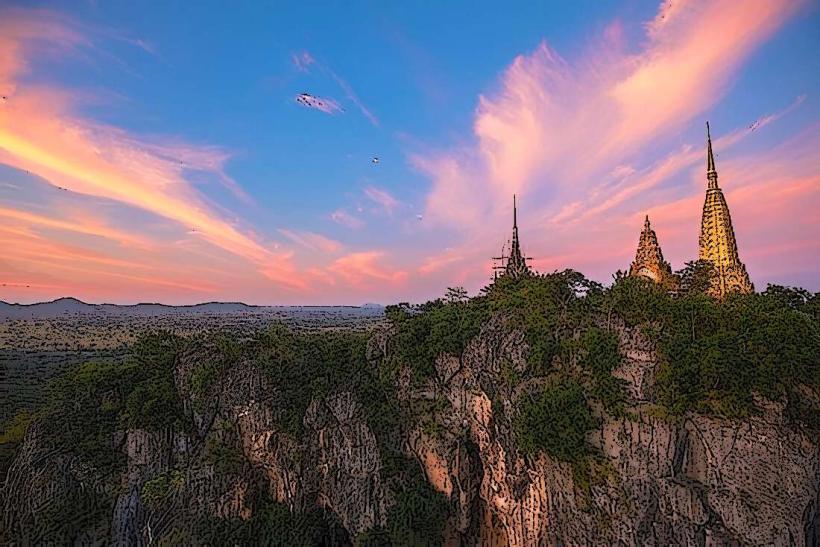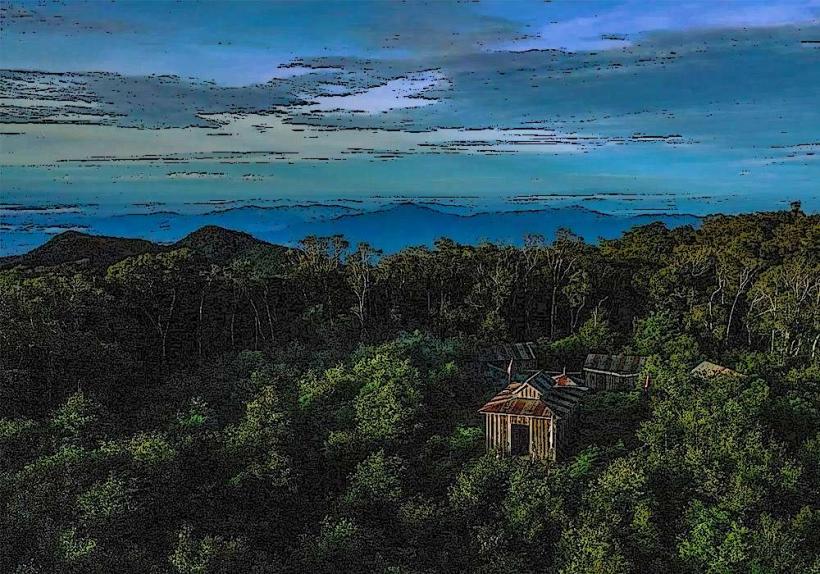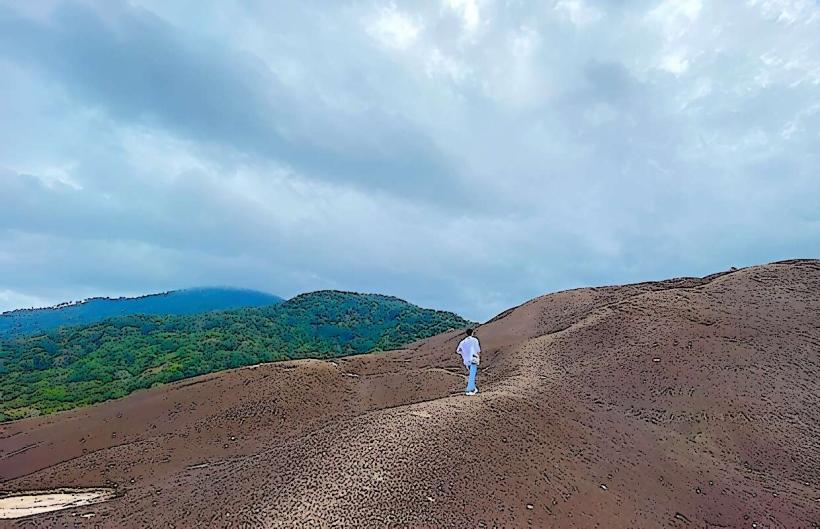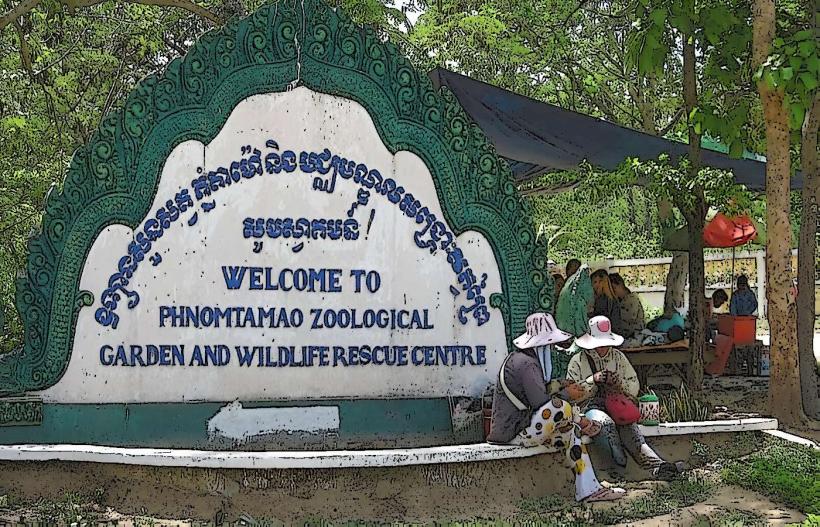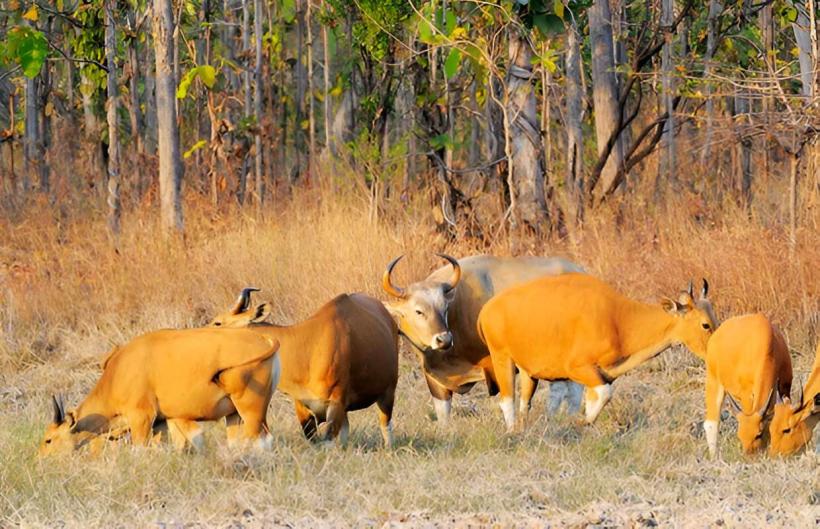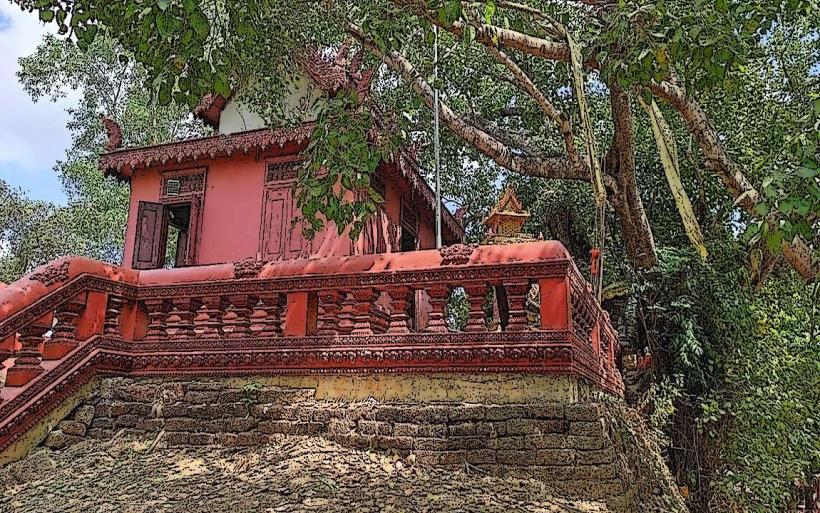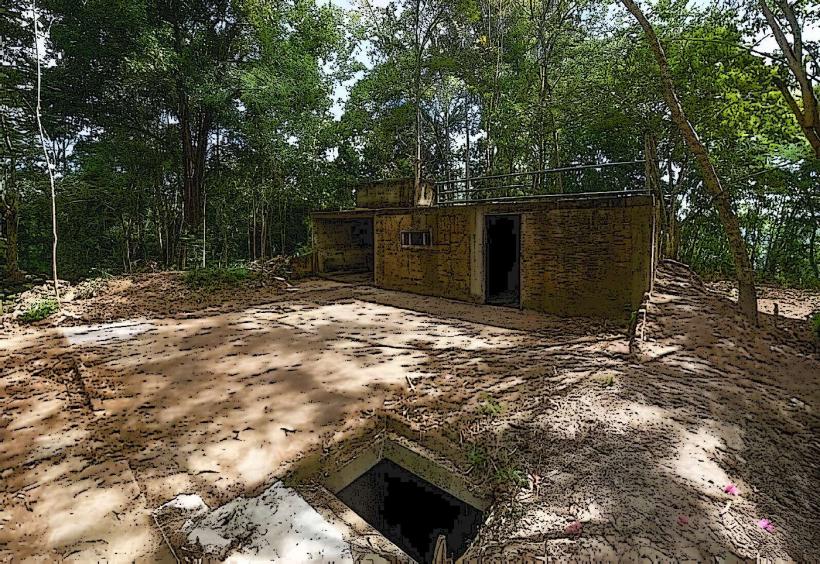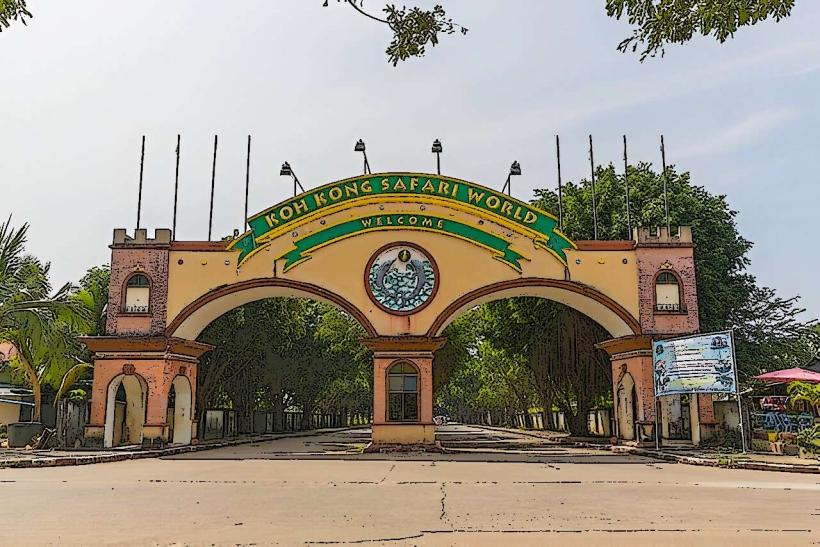Information
Landmark: Phnom Chisor TempleCity: Cambodia Province
Country: Cambodia
Continent: Asia
Phnom Chisor Temple, Cambodia Province, Cambodia, Asia
Phnom Chisor Temple – A Majestic Hilltop Temple in Cambodia
Phnom Chisor Temple, located in Takeo Province in southern Cambodia, is an ancient Khmer temple situated atop a hill that offers stunning panoramic views of the surrounding countryside. The temple is historically significant, both for its religious value and its strategic location, and is a popular destination for visitors interested in history, culture, and archaeology.
Historical Significance
Phnom Chisor dates back to the 11th century, during the reign of King Suryavarman I (1006–1050 CE). The temple was originally constructed as a Hindu temple dedicated to the deity Shiva. However, it later became a Buddhist site as the Khmer Empire transitioned to Theravāda Buddhism.
The temple complex was an important religious and cultural center during its peak, and it is believed that the king may have used the site to demonstrate his power, as it is situated atop a 400-meter-high hill that requires a climb of over 300 steps to reach the temple. The temple’s strategic location also provided defensive advantages, offering views of the surrounding regions.
Temple Architecture and Features
Phnom Chisor Temple is notable for its classic Khmer architecture, which reflects the religious practices and artistic achievements of the Angkorian period.
- Main Temple Structure – The central sanctuary is dedicated to Shiva and features intricate carvings, especially around the doorways and walls.
- Carvings and Sculptures – The temple is adorned with stone carvings of deities, mythological creatures, and scenes from Hindu epics. Some of the reliefs depict Brahmanical motifs and are thought to have been added during the temple’s use as a Hindu worship site.
- The Steep Climb – Visitors must climb stairs carved into the hill to reach the temple. The 300+ steps are often seen as a form of devotion, symbolizing the ascent to the divine.
- Panoramic Views – From the top, visitors can enjoy breathtaking views of the Takeo Province countryside, including rice fields, small villages, and neighboring hills.
Religious and Cultural Significance
While Phnom Chisor is an ancient temple, it is still used for religious ceremonies by local communities. It is one of the most important Buddhist temples in Takeo Province, and it is often visited by both locals and tourists seeking spiritual connection and peace. Many Cambodian families come here to pray, make offerings, and seek blessings.
Phnom Chisor is also a symbol of Cambodian resilience and cultural pride, representing a link between Cambodia’s ancient Hindu past and its Buddhist present. It is a site where religious traditions and cultural heritage come together.
What to See and Do at Phnom Chisor
- Climb the Hill – The journey up to the temple involves a challenging but rewarding climb of more than 300 steps, which can be steep, especially in the heat. The climb is part of the spiritual experience, as it symbolizes the effort required to reach enlightenment.
- Explore the Temple – Once at the top, visitors can admire the architecture, carvings, and the well-maintained structure of the temple.
- Enjoy the Views – The panoramic view of the surrounding plains, forests, and villages is one of the most stunning features of Phnom Chisor.
- Religious Ceremonies – Depending on when you visit, you may witness local monks conducting Buddhist rituals, prayers, and blessings.
- Photography – The temple and its surroundings offer great photo opportunities, especially the expansive views from the hilltop.
- Picnics and Relaxation – Some visitors enjoy bringing food and relaxing in the peaceful atmosphere of the site, enjoying the cool breeze and scenic views.
Visiting Phnom Chisor
- Location: Phnom Chisor is located about 50 kilometers south of Phnom Penh, the capital of Cambodia, and is easily accessible by road.
- How to Get There:
- From Phnom Penh: A 1- to 1.5-hour drive south to the temple site.
- From Takeo City: About 30 kilometers to the temple, which can be reached by car or tuk-tuk.
- Best Time to Visit:
- The cooler months, from November to February, are ideal for the climb as the weather is not as hot.
- Early morning or late afternoon is recommended for a more pleasant experience, avoiding the midday heat and crowds.
- Entrance Fee: There is a small entrance fee to visit the temple, and it may include additional costs for guides or transportation if required.
Nearby Attractions
- Tonle Bati (Bati Lake) – A scenic area nearby that features two ancient temples, Ta Prohm and Yeay Peau, along with the serene lake.
- Phnom Da Temple – Another historical site near Takeo, which is older than Phnom Chisor and also features Hindu and Buddhist elements.
- Angkor Borei – An ancient site that predates the Angkor civilization and is considered one of Cambodia’s first urban centers.
Conclusion
Phnom Chisor Temple is a serene and historically rich site that offers insight into Cambodia’s religious history and provides visitors with a unique cultural experience. The spectacular views, ancient architecture, and spiritual atmosphere make it a must-visit for those interested in Cambodian heritage and history. The site offers a glimpse into the grandeur of the Khmer Empire and provides a peaceful retreat from the hustle and bustle of modern life.

